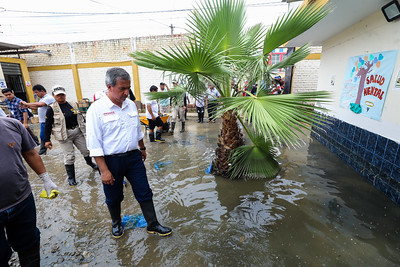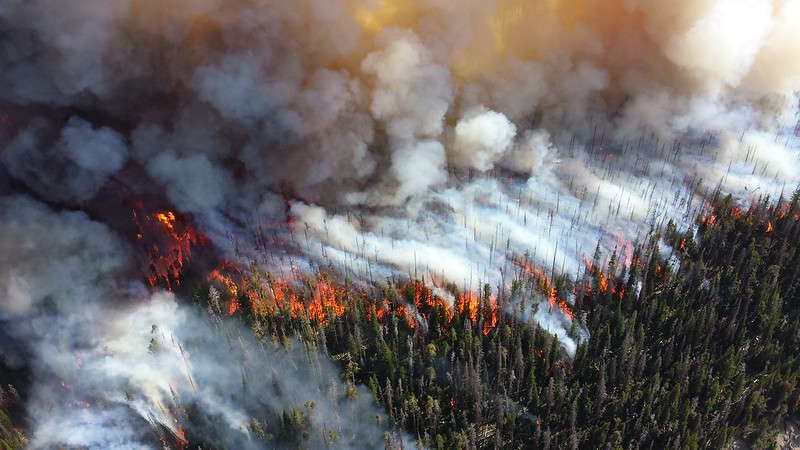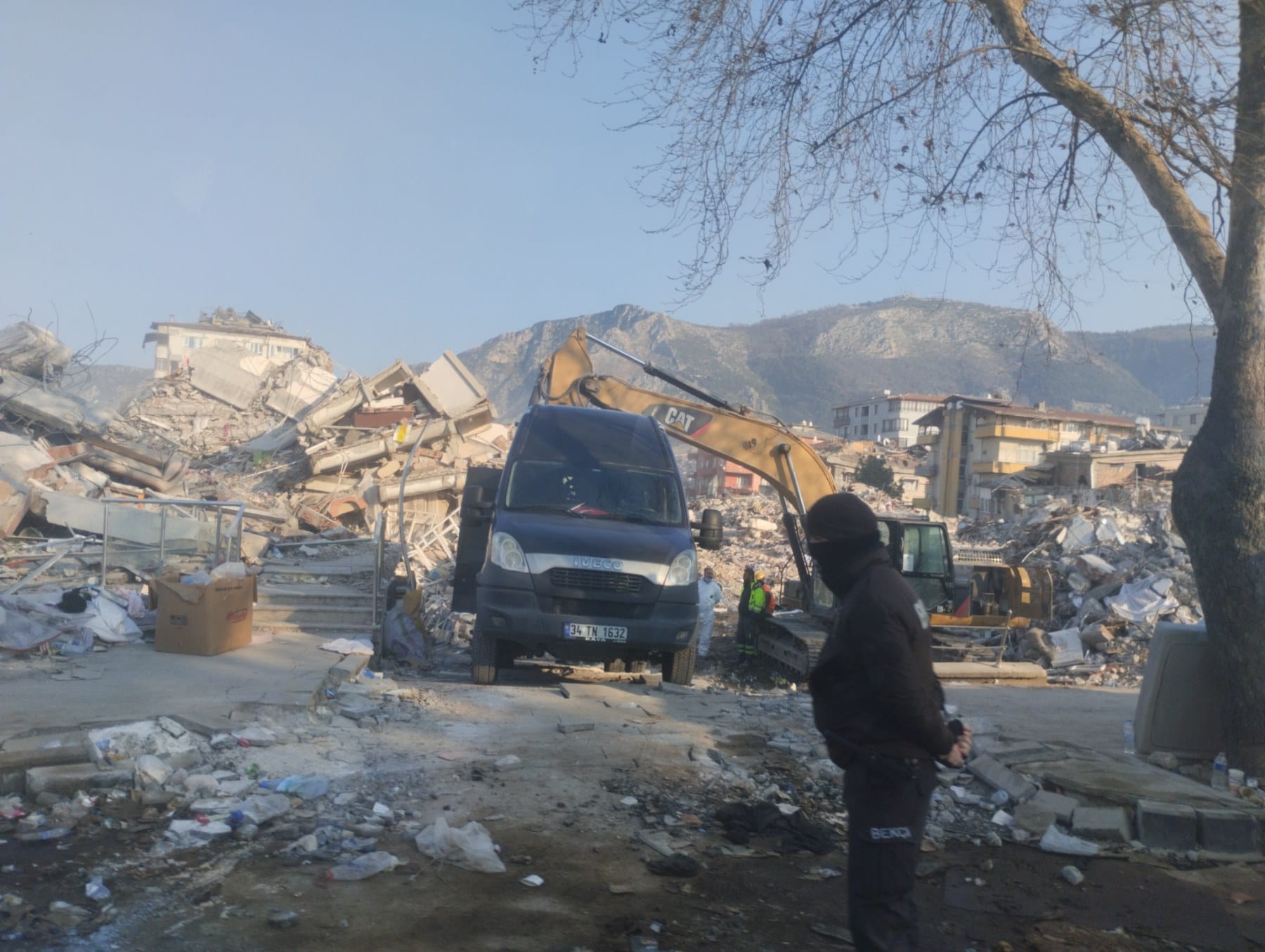In Peru, Emergency Support is being used to help groups affected by flooding

From January to May this year, Peru and in particular its northern regions experienced very heavy rainfall which peaked with the Yaku cyclone in March. This led to flooding, both in rural and urban areas, particularly in the Libertad, Lambayeque, Piura, and Tumbes regions, along the border with Ecuador, but equally all over Lima, in the mountain regions, and in some of the neighbouring coastal cities surrounding Lima.
On the 13th of March, a state of emergency was declared in several regions around the country where Emmaus groups operate. Three Emmaus groups (Piura, Lambayeque, Trujillo) were directly affected, primarily as a result of damage to their infrastructure – collapsed roofing, destroyed walls, flooded electrical systems, etc.
As a result of the given situation, Emmaus International chose to use the Emergency Fund to help with repair work in locally affected areas. €3000 was provided to Traperos Águilas Emaús Piura, €3000 to Traperos de Emaús Trujillo and €1860 to Traperos Emaús Lambayeque. This money was used to finance repair work and to ensure local damaged premises were safe and secure.
However, following the cyclone there was more heavy rainfall in April and May, which did even more damage. Important structures such as sea walls were destroyed, roads were damaged and blocked, dozens of homes were impacted, drinking water distribution centres were ruined, and so on.
“We are living in a city where the infrastructure has collapsed”
Since the start of the year, 85,000 families have been affected by this flooding, with a total of 85 deaths. Since then, thankfully, the rains have stopped – but they have since been followed by extreme heat, which has caused both healthcare issues as well as a rise in the spread of numerous infectious diseases. In Piura, hospitals are overwhelmed, and a number of regions have been unable to regain access to electricity or drinking water.
“Aujourd’hui, les infrastructures de la ville sont paralysées et ses rues sont détériorées. Les bassins de rétention des eaux de pluie débordent, provoquant des dégâts dans les logements de la ville. Enfin, le problème des eaux contaminées n’est toujours pas résolu dans plusieurs parties de la ville. En outre, le prix des denrées alimentaires et des matériaux de construction a augmenté de 30 %, tout comme l’équipement ménager, l’ameublement et les autres services pour la maison. Le taux de chômage a augmenté de 4 % et le travail au noir prend de l’ampleur. Sur le plan sanitaire, les vastes étendues d’eau stagnante ont entraîné une épidémie de dengue dans la ville. Le coût des médicaments est à la hausse, alors que les chiffres sont alarmants : 114 746 personnes ont été infectées et 156 sont décédées”, outlined a concerned Juan Melquiades, the head of Emmaus Piura.
This situation has had significant consequences for the group, which lies in the north of the country. “La communauté se trouvant en zone inondable, notre travail quotidien est perturbé : le transport de matériaux dans nos véhicules est devenu compliqué et les clients sont aux abonnés absents dans notre boutique solidaire. Nos ateliers, ainsi qu’une partie des entrepôts et de notre maison communautaire, ont également été inondés. Au cours des 4 derniers mois, nos revenus ont chuté et ne couvrent que 55 % de notre budget mensuel, ce qui provoque un déficit mettant en péril le développement de nos activités et surtout de nos actions sociales”, Juan Melquiades explained.
Emmaus International has been putting the Emergency Fund to work
The government response does not reflect the true scale of needs, because aside from just damaged or destroyed housing, a large proportion of crops and fields have also been destroyed – which has a devastating impact on a population in which over 50% of citizens work from informal and insecure agricultural jobs. As a result, people have not just lost their source of food but also their source of income, and all at the same time – with things being made even worse since food prices have risen by almost 30% because of the crisis. This situation has a seriously detrimental impact on the social and economic development of the country, a country already ravaged by a political crisis since December 2022.
In response to the situation and considering the huge need for food in the area, the Emmaus Peru Federation has been doing everything it can, but they are still unfortunately facing a 60% drop in their activity as compared to before the crisis.
As a result, the Emmaus International Emergency Fund was once again used in order to distribute “food parcels” to 1,350 families, or around 6,400 people, which was made possible thanks to a sum of €5,760 given to each of the 5 groups: Traperos Águilas Emaús Piura, Traperos Emaús Lambayeque, Traperos de Emaús Trujillo, Traperos de Emaús Villa el Salvador, and Cuna Nazareth, the last two listed here being located in Lima.


